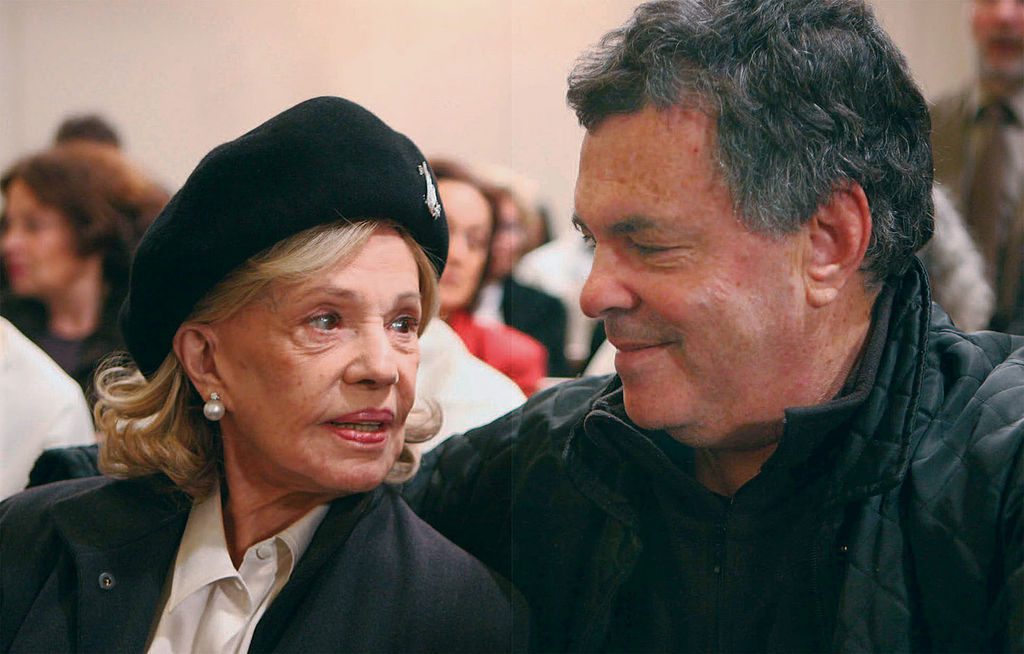‘Jules and Jim’ Star Moreau Has Died
By • August 3, 2017 0 1302

The compelling, haunting French film actress Jeanne Moreau died July 31 at the age of 89.
To note her passing is to go on a nostalgic journey into the days when a large swath of Americans discovered the allure of foreign films (and their directors, labeled auteurs), the delicate art of reading subtitles and, equally important, the charisma of European movie stars.
We went to these movies, then gathered in cafés or dorm rooms and talked about what Anita Ekberg was doing in the fountain in Rome in “La Dolce Vita,” got excited about the young rebel lovers Jean-Paul Belmondo and Jean Seberg in Godard’s “Breathless,” tried to decipher the meaning of time itself in “Last Year at Marienbad,” directed by Alain Renoir (grandson of the painter and son of the “Grande Illusion” director), were in awe of the knight Max von Sydow playing chess with Death in Bergman’s “The Seventh Seal” and wondered when a Michelangelo Antononi film might end, if ever.
Some of these films were disturbing, some of them slow, some of them fresh as a new idea and some of them, well, sexier than your average American romance. If you’re Catholic, you remember that they could be found on the National Legion of Decency list.
We saw a different sort of male star in the free-spirited Belmondo, the cragged visage of von Sydow, the sage and jade Marcello Mastroianni.
And we saw Sophia Loren, still in Italian movies, the French “sex kitten” Brigitte Bardot, all pouty and blonde in “And God Created Woman” (which didn’t feel like an afterthought) and the eternally beautiful Catherine Deneuve, still working.
Then there was Jeanne Moreau, who was purely French, grown up, unknowable. She could casually walk into one of your dreams and inhabit it, just because.
Moreau seemed entirely European, unique and sophisticated. Even in her youth, she seemed knowing, a grown woman — in contrast to her polar opposite, Bardot. She was not a classic beauty; she was thin, with a face that seemed always to be looking straight at you.
She was a Parisian, with genes that pointed her straight toward performing. Her mother was a chorus dancer, her father owned a café. It was a hard upbringing, one she soon escaped for a life in the theater. Her first major role was as Maggie the Cat in “Cat on a Hot Tin Roof” (one wonders how that would sound in French).
Her breakout came in “The Lovers,” a chronicle of a love affair, somewhat scandalous for the times, a frank telling in sexual terms.
With Moreau, it was always about her face. She acted through her pores, attracting some of the top stars and directors, including François Truffaut, who directed her in “Jules and Jim,” in which she played a free-spirited young woman named Catherine who becomes involved with two men — a Frenchman, played by Henri Serre, and a German, played by Oskar Werner — during and after World War I. She glowed in the film and basked in the unconventional relationship. The film is often listed among the top 100 films ever made.
The director Louis Malle discovered her, but she also worked with Roger Vadim in “Les Liaisons Dangereuses” (a later American version starred Glenn Close and John Malkovitch) and with Antonini and opposite Mastroianni in the alarmingly static “La Notte.” She even played Doll Tearsheet in Orson Welles’s Falstaffian “Chimes at Midnight.”
In reports, she said that “acting was not a profession, it was a way of living.” In that way of living, she found herself, and gave us Jeanne Moreau, unforgettable.

